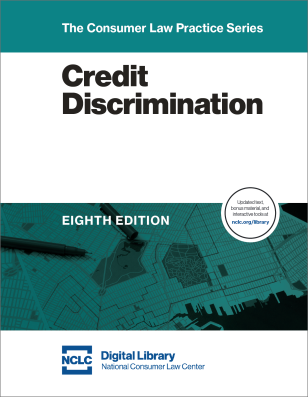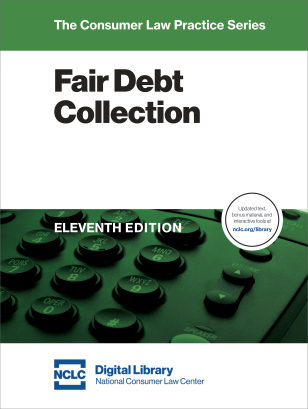This article describes what does and does not change after the Supreme Court’s April 28, 2022, ruling in Cummings v. Premier Rehab Keller, P.L.L.C., that emotional distress damages are not available under federal discrimination causes of action based on the Rehabilitation Act of 1973 and the Patient Protection and Affordable Care Act (ACA).
Defendants in discrimination lawsuits are sure to raise Cummings when defending against emotional distress damages sought under additional discrimination statutes and even under other causes of action. They may even cite to Cummings when arguing that a case seeking only emotional distress damages does not have Article III standing in federal court.
This article explains why Cummings does not apply to most discrimination cases or other causes of action and provides advice when seeking emotional distress damages. Finally, the article considers whether emotional distress is a sufficiently concrete injury to provide case or controversy standing in federal court.
What the Supreme Court Said in Cummings
In Cummings v. Premier Rehab Keller, P.L.L.C., 2022 WL 1243658 (U.S. Apr. 28, 2022), a deaf and legally blind individual was denied a sign language translator when receiving physical therapy services. She brought a federal action seeking only emotional distress damages under the Rehabilitation Act of 1973 and the ACA.
Both statutes contain provisions prohibiting an entity receiving federal financial assistance from discriminating based on an individual’s disability. While neither statute provides an explicit private right of action, the Supreme Court previously had implied one for injunctive and monetary relief under both statutes. The issue before the Court was whether monetary relief in actions brought under those two statutes includes emotional distress damages.
Unlike many discrimination statutes, Congressional authority for the discrimination provisions in the Rehabilitation Act and the ACA is based on the Constitution’s Spending Clause, which gives Congress broad power to “fix the terms on which it shall disburse federal money.” The Rehabilitation Act and the ACA condition receipt of federal financial assistance on the recipient not discriminating on bases prohibited by the Acts, including disability.
Receipt of the financial federal assistance provides what amounts to a contract between the United States and the recipient of funds not to discriminate in exchange for federal assistance. Authority for the legislation rests not on Congress’s sovereign authority to enact binding laws, but on whether the recipient voluntarily and knowingly accepts the terms of that contract. The decision holds that, to be liable for emotional distress damages for violating the terms of the “contract,” the funding recipient must be on notice that, by accepting federal funding, its breach of the agreement exposes it to liability for emotional distress damages.
The Cummings opinion then surveys contract law to determine whether an entity breaching its agreement with the federal government would be on notice that it would be liable for emotional distress damages for its breach of contract. Critical to the Court’s ruling is that it relied on the usual rule for contract remedies that emotional distress damages are not available.
While the Court acknowledged that there are many exceptions to this usual rule that allow for emotional distress damages in contract cases, the majority of the six conservative justices found this to be beside the point. What was determinative instead was the contract rule that usually or generally applies. The dissenting opinion by the three liberal justices argued that contract law would in fact allow for emotional distress damages in cases involving discrimination, and it was this more specific form of notice that should be determinative.
The Ruling Directly Controls Remedies Under Four Federal Discrimination Statutes
Cummings directly controls the availability of emotional distress damages under four federal discrimination statutes—the only federal discrimination statutes whose authority is based on the Spending Clause:
- The Civil Rights Act of 1964, Title VI, 42 U.S.C. § 2000d, which states that “No person in the United States shall, on the ground of race, color, or national origin, be excluded from participation in, be denied the benefits of, or be subjected to discrimination under any program or activity receiving Federal financial assistance.”
- Education Amendments Act of 1972, Title IX, 20 U.S.C. § 1681, which provides, with numerous exceptions, that “No person in the United States shall, on the basis of sex, be excluded from participation in, be denied the benefits of, or be subjected to discrimination under any education program or activity receiving Federal financial assistance.”
- Rehabilitation Act of 1973, § 504, 29 U.S.C. § 794, which provides that “No otherwise qualified individual with a disability … shall, solely by reason of her or his disability, be excluded from the participation in, be denied the benefits of, or be subjected to discrimination under any program or activity receiving Federal financial assistance…”
- The ACA § 1557, 42 U.S.C. § 18116, which provides that an individual shall not, on the ground of race, color, national origin, age, disability, or sex be excluded from participation in, be denied the benefits of, or be subjected to discrimination under, any health program or activity, any part of which is receiving federal financial assistance.
Cummings Does Not Limit Emotional Distress Damages Under Other Federal Discrimination Statutes
Congressional authority for other federal discrimination statutes, such as the Equal Credit Opportunity Act (ECOA), the Fair Housing Act (FHA), and 42 U.S.C. §§ 1981 and 1983, is not based on the Spending Clause. Instead, it is based on the Commerce Clause and authority given to Congress by the Thirteenth and Fourteenth Amendments to enforce those two Amendments by appropriate legislation.
As such, enforcement of these other discrimination laws is not based on a breach of a contact between the entity accused of discrimination and the United States—the laws apply whether or not the defendant has accepted federal funds or has agreed not to discriminate.
If violation of these other discrimination statutes has a common law analogy, it is not to a breach of contract, but to a tort, where emotional distress damages are commonly available. The ECOA, FHA, and § 1981 explicitly provide for punitive damages, and many cases have found emotional distress damages available under those statutes as well. See NCLC’s Credit Discrimination § 11.8.2.3. Note also that § 1981a(b)(3) explicitly mentions emotional distress damages in employment discrimination cases.
Cummings clearly does not affect the availability of emotional distress damages for statutory violations not involving discrimination law and whose legislative authority is not based on the Spending Clause. For example, courts typically find emotional distress recoverable under the Fair Debt Collection Practices Act (FDCPA), and that the consumer need not meet state tort requirements to prove emotional distress damages. See NCLC’s Fair Debt Collection § 11.8.2.4.
Courts also find that emotional distress damages are available under the Fair Credit Reporting Act, although courts are divided as to whether a physical manifestation of the distress is required. See NCLC’s Fair Credit Reporting § 12.5.2.3.4.
UDAP statutes (state statutes of general applicability prohibiting unfair or deceptive practices) allow for emotional distress damages, except for the few statutes that explicitly exclude such recovery. Otherwise, emotional distress recovery has been allowed where state common law would provide for such recovery, and in some cases even when the state’s common law would not. See NCLC’s Unfair and Deceptive Acts and Practices § 12.3.3.9.
Helpful practice pointers on recovering emotional distress damages in consumer litigation are found in the following NCLC treatises:
- Automobile Fraud § 10.10.3.2;
- Credit Discrimination § 11.8.2.3;
- Fair Credit Reporting § 12.5.2.3.5;
- Fair Debt Collection §§ 11.8.2, 11.8.6.3, 15.2.1.
Cummings as a Guide to Obtaining Emotional Distress Damages for Breach of Contract
Cummings does not limit emotional distress damages as a remedy for breach of contract. It instead restates the general rule that they are not usually available, while acknowledging the various exceptions found in many states that allow for emotional distress damages in certain circumstances. The Court did not apply those exceptions to the two discrimination statutes at issue, because the Court was only concerned with identifying the usual rule. But the Court clearly acknowledges the availability of contract emotional distress damages in certain contexts. Moreover, the very question of state remedies for breach of contract is a matter of state law generally not reviewable by the Supreme Court.
The majority and minority opinions in Cummings instead provide a handy shortcut for a consumer attorney seeking to develop bases to recover emotional distress damages in breach of contract or warranty cases. Both opinions cite extensively to provisions in the Restatement (Second) of Contracts and to contract law treatises that set out circumstances when emotional distress damages are available in breach of contract cases.
In the consumer context, the availability of breach of contract emotional distress damages comes up often in warranty cases, particularly those involving a manufactured home or other housing. For citations to numerous cases finding emotional distress recoverable in warranty cases, see NCLC’s Consumer Warranty Law § 10.5.3.3.
Is Emotional Distress Enough for Constitutional Case and Controversy Standing?
Since the plaintiffs in Cummings only alleged emotional distress injury, the Supreme Court decision can be viewed as indirect support for the view that emotional distress injury is a concrete injury providing for Constitutional case or controversy standing in federal court. The Supreme Court often disposes of cases on Constitutional standing grounds or other subject matter jurisdiction before reaching the merits, and the failure to do so in Cummings is telling. The Court, if it thought emotional distress was not sufficient concrete injury, could have raised such jurisdictional grounds for dismissal at any time, even when not raised by courts below.
The Supreme Court has not elsewhere addressed whether emotional distress injury is sufficient to provide Constitutional standing, but many lower courts have found this injury sufficient. The issue often comes up in FDCPA litigation, and most circuit courts and many district courts find emotional distress injury sufficient to provide the consumer standing when raising FDCPA claims in federal court. See NCLC’s Fair Debt Collection § 11.15.3.4. See also NCLC’s Federal Deception Law §§ 7.4.3.5, 7.4.3.6 (Telephone Consumer Protection Act claims with standing in federal court).



